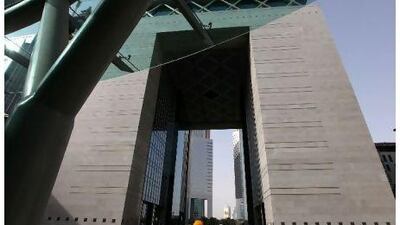The Carlyle Group, one of the world's biggest buyout companies, is setting up the first investment funds to be covered by new regulations in the Dubai International Financial Centre (DIFC).
The rules are designed to make fund management in the financial free zone easier and cheaper.
The rules, which were put in place in July by the Dubai Financial Services Authority (DFSA), the DIFC's regulator, allow financial companies to manage funds from the centre without having a physical presence there. The rules also lift restrictions on marketing the funds. Fees to apply for a licence to manage funds were reduced to US$10,000 (Dh36,732) from $40,000 previously. Additional regulatory exemptions were established for sophisticated investment products.
"Carlyle utilising the new funds regime underlines the DIFC's position as the region's most competitive financial centre for fund managers," said Marwan Ahmad Lutfi, the DIFC Authority's deputy chief executive and its head of business development. "By using the DIFC as the platform from which to base its funds, Carlyle is demonstrating that the DIFC is a prime location for both foreign and domestic fund managers."
The DIFC's leadership is hoping Carlyle's new fund licence - it had been registered with the DFSA under the old regime - will presage a flood of registrations as other financial companies take advantage of the lower fees and looser restrictions on marketing. The changes to the funds policy, enacted by the DFSA after consultation with fund-industry experts, is a key cog in the centre's strategy to remain competitive as a regional financial hub.
"The new funds regime is a testament to the DIFC being a domicile of choice for private-equity firms, and we are pleased to be the first such firm to benefit from the law," said Walid Musallam, the managing director and head of Carlyle in the region. "The DIFC's stature and importance as a financial hub is growing. We see great investment promise throughout the MENA region and look forward to building upon the many valued relationships we have developed."
With the new licence, Carlyle's investment team in Dubai will be allowed to create and manage funds based in the DIFC, something the company could not do previously. Under its old licence, Carlyle managers could advise only on funds based outside of Dubai.
In concert with the latest move, the company said it had launched Carlyle MENA Investment Advisers, a vehicle that will work with an existing regional fund called Carlyle MENA Partners. This vehicle will not raise additional funds from investors, however.
Carlyle MENA Partners is the only fund the private-equity giant runs in the MENA region. The firm has long-standing connections, however, with Dubai and Abu Dhabi. Mubadala Development, a strategic investment company owned by the Abu Dhabi Government, bought 7.5 per cent of Carlyle in 2007.
It added to that investment this month, putting in an additional $500 million.
"The DIFC introduced the new funds regime following recommendations made by a panel of market practitioners," Mr Lutfi said.
"We wanted to gauge what the funds community really wanted in order to create an environment which would stimulate further growth of the industry.
"The regulatory changes bring the DIFC in line with other leading financial hubs around the world."

